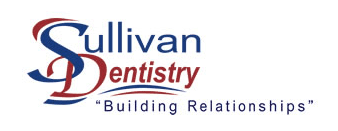Have you ever wondered how the practice of dental cleanings evolved throughout history? From the use of rudimentary tools in ancient civilizations to the advanced techniques of today, the journey of dental hygiene reflects a fascinating blend of innovation and tradition. This historical voyage reveals the continuous human effort to maintain oral health across different eras and cultures.
Ancient Civilizations’ Dental Cleaning Practices
The journey of dental cleanings has a rich history that dates back to ancient civilizations, where the importance of oral hygiene was recognized, albeit through rudimentary methods. These early societies, including the Egyptians, Greeks, and Romans, employed various tools and concoctions to maintain dental health. They utilized sticks from specific trees to clean their teeth, believing that the fibers of these sticks could remove debris and plaque. Additionally, powders made from crushed bones, eggshells, and oyster shells were used as an abrasive to clean teeth, showcasing an early understanding of the need to keep teeth free from build-up.
The evolution of dental cleaning practices from ancient times underscores the continuous recognition of oral hygiene’s significance to overall health. While methods and tools have significantly advanced, the fundamental goal of preventing dental diseases has remained constant. This historical perspective highlights the importance of maintaining oral hygiene practices, a principle that is echoed in modern dentistry’s emphasis on preventive care. For more insights into how contemporary dental practices continue to prioritize preventive care, consider exploring Regular Dental Exams: Key to Oral Wellness, which delves into the critical role of regular check-ups in maintaining oral health.
Medieval Dental Hygiene Techniques
In the medieval period, dental hygiene practices were rudimentary yet intriguing, reflecting the era’s limited understanding of dental science. People relied on natural remedies and basic tools to maintain oral health. Herbs, such as mint and sage, were commonly used for their antiseptic properties to freshen breath. Chew sticks, made from twigs of certain trees, served as the precursors to modern toothbrushes. These sticks were frayed at one end to clean the teeth and freshen the mouth. Despite the lack of advanced dental knowledge and technology, these methods highlight the ingenuity of medieval societies in addressing dental care with the resources available to them.
The importance of maintaining oral health has been recognized throughout history, evolving with time to incorporate more sophisticated techniques and knowledge. Today, professional dental care is essential for ensuring optimal oral health. For those seeking comprehensive dental care, Expert Dental Exams in Mukwonago offer a modern approach to oral hygiene, building upon centuries of evolving practices.
19th Century Dental Cleaning Evolution
The 19th century marked a pivotal era in the evolution of dental cleanings, showcasing significant advancements in both understanding and methodology. This period witnessed a transformation from rudimentary practices to more refined techniques, as the importance of oral hygiene gained recognition. Dental professionals of the time began to emphasize the removal of plaque and the prevention of dental diseases, leading to the development of specialized tools designed for more effective cleaning. This era laid the groundwork for modern dental care, highlighting a shift towards preventive measures and the promotion of oral health. The evolution of dental cleaning practices during the 19th century represents a crucial chapter in the history of dentistry, illustrating a move towards the comprehensive care approaches we are familiar with today.
Early 20th Century Dental Innovations
The dawn of the 20th century marked a pivotal era in the evolution of dental cleanings and overall oral health practices. This period was characterized by significant advancements that fundamentally transformed dental care. Innovations such as the introduction of electric dental drills, the development of more effective anesthetics, and the establishment of fluoridation practices to prevent tooth decay, all contributed to making dental care more efficient, less painful, and more accessible to the wider public. These technological and methodological advancements laid the groundwork for the modern dental practices we are familiar with today. For those interested in experiencing the culmination of centuries of dental innovation, Sullivan Dentistry offers a glimpse into state-of-the-art oral care at Mukwonago Dentist.
Modern Advances in Dental Cleanings
The evolution of dental cleanings has been remarkable, transitioning from primitive tools and techniques to the sophisticated methods we see today. Modern advances have significantly improved the efficiency, comfort, and outcomes of dental cleanings. These developments leverage cutting-edge technology and research to ensure that dental hygiene is more accessible and effective than ever before. With ongoing innovations in the field, dental professionals are equipped to provide care that not only addresses immediate oral health needs but also contributes to the overall well-being of individuals. The journey of dental cleanings through time reflects a broader commitment to advancing healthcare practices for the benefit of communities worldwide.
Conclusion
Embark on your own historical journey in dental care by calling us at 262-363-4114 or read our reviews on Google Maps.

